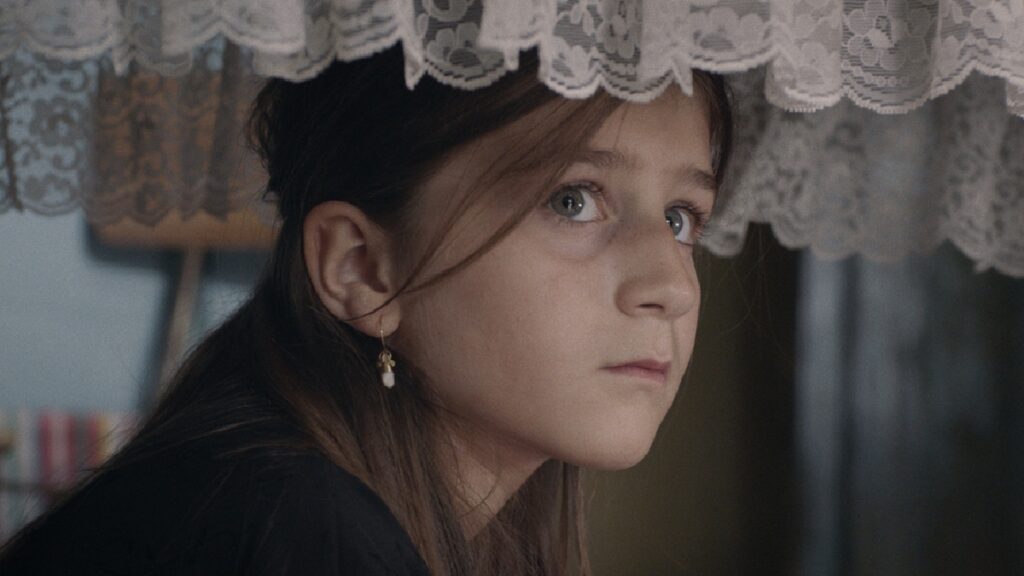Alma Viva is the debut feature of Cristèle Alves Meira. Like every summer, little Salomé returns to her family village nestled in the Portuguese mountains for the holidays. As the vacations begin in a carefree atmosphere, her beloved grandmother suddenly dies. While the adults are tearing each other apart over the funeral, Salomé is haunted by the spirit of the one who was considered a witch, and it seems that the granddaughter has the ability to contact invisible forces as well. The story is primarily seen from the child’s perspective, played by the director’s own daughter, and is set in the Tras-Os-Montes region.
The project was born out of a feeling of injustice that the director felt after her maternal grandmother died. She was in her twenties and saw the relatives fight over vulgar money-related questions. Who was going to pay for her tombstone? Who would inherit what? This brutality in human relationships made her want to make a film about it, but eventually, only one scene from that incident remains in the film. Instead, the film focuses on the relationship of a grandmother and her granddaughter, even after the former is dead. It is a film of opposites. A major source of conflict is between those who migrated to France and those who had to remain to care for their relatives.
This becomes apparent when an uncle returns to show off his wealth and his French wife, resulting in several clashes shown with unusual frankness. The director refers to the region as a setting for a western with urban legends and neighbourhood wars and rivalries. In some ways, Alma Viva is similar to last year’s standout debut, Mighty Flash by Ainhoa Rodriguez. These conflicts account for some of the major themes in the film, but what remains the most important is the depiction of the three generations of women and how they cope with their respective realities. It is clear that one of the reasons that the grandmother is labelled a witch is her sexual liaison with a neighbour’s husband.
So, on the one hand, we have a story of men trying to control women’s behaviour in general and their sexuality specifically. It is still not that simple as that since the grandmother, Avo, was indeed dabbling in seances and other stuff, with Salomé now trying to follow suit. The two branches of the film, more than often, work well together. The cinematography by Rui Poças (known for many Portuguese classics, including Joao-Pedro Rodriguez’s films) gives the film an otherworldly feel, not least in the magnificent first scene where ours and Salomé’s view of events are partly blocked.
That might raise expectations that the rest of the film doesn’t live up to, but there is always something on the screen to keep up the spectator’s interest. The director has an eye for comedy and manages to maintain the balance in scenes that could easily have tipped over on the wrong side. Alma Viva is an assured debut by Cristèle Alves Meira, and I will keep an eye on her films in the future.

